Journalism heavyweights slam Australian media law
By Youssef Saudie
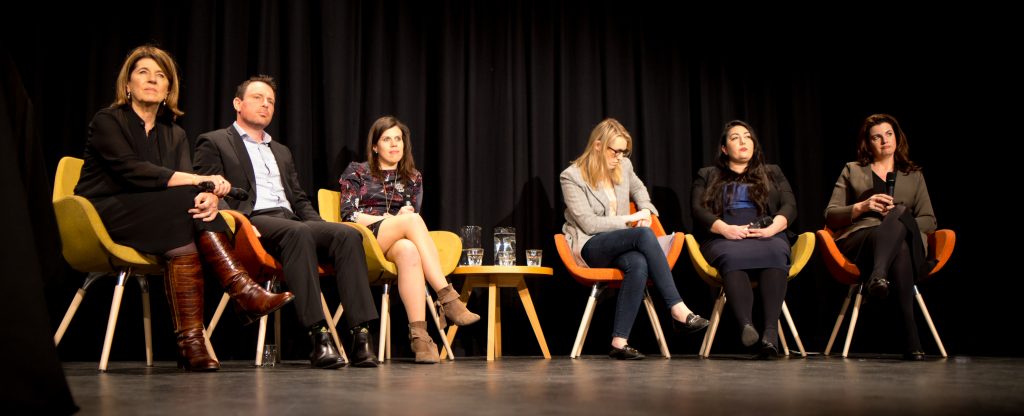
The panellists of the ‘What Price Would You Pay?’ event. Photo: Warwick Jones
Notable and award-winning journalists called for changes to media law to protect public interest journalism last Thursday at RMIT University.
The panellists at the Walkley event, What Price Would You Pay?, drew from experiences as investigative journalists and the recent raids on Annika Smethurst and the ABC, which sparked an inquiry into press freedom.
Louise Milligan, Walkley-winning journalist for the ABC, said Australia must strengthen journalists’ privilege and whistleblower protections.
“What happened to poor Annika, having cops going through her undies drawer, ministerial discretion is not enough,” she said. “We need legislation to protect media.”
Lisa Martin, Walkley finalist and journalist for The Guardian, said the current Freedom of Information Act was “just a joke”.
Martin broke the story about Minister for Home Affairs, Peter Dutton, “granting visas to au pairs under very unusual circumstances”.
“It took me two years before I could publish a single word of that story, and that was a huge scandal in Australian politics,” she said.
Grant McArthur, Walkley-winning health editor for the Herald Sun, said journalists’ privilege should “absolutely be strengthened”.
“There are more and more obstacles, but no protections,” McArthur said. “You’re left floating out in the breeze.”
The AFP Commissioner, Andrew Colvin, told the inquiry into press freedom last Wednesday that the public’s right to know “has to be balanced against a range of factors, including national security and operational safety”.
“If there is an imbalance between national security and press freedom, then that imbalance has to be addressed through law,” he said
___________
Press freedom in Australia must change, journalists warn
By Riley Barber
The day after Louise Milligan released her book, Cardinal: the Rise and Fall of George Pell, George Pell, the highest-ranking Australian in the Catholic Church, was charged with multiple counts of sexual assault. With her book under scrutiny, Louise faced the prospect of being asked to break media ethics – and his victims’ trust – by revealing her confidential sources.
In the shadow of recent police raids on Annika Smethurst and the ABC, Louise asked what would have happened if she hadn’t been so lucky during Pell’s trial? What would have happened if she was forced to give up her sources? What would have happened if she wasn’t able to write her book in the first place?
“There needs to be legislation protecting journalists and their sources,” Louise said. “Whistleblowers are doing the right thing walking through a ring of fire, but it would be easier if there was a safety net.”

Louise Milligan speaking at ‘What Price Would You Pay?’ Photo: Warwick Jones
“I had a potential whistleblower get cold feet,” Lisa Martin told the packed theatre. Lisa, a journalist for The Guardian and double Walkley nominee, broke the story about Minister for Home Affairs, Peter Dutton, intervening in immigration matters by granting visas to two au pairs, and was “expecting to get raided”. Louise’s concerns were echoed by fellow panellists at What Price Would You Pay?, the Walkley Foundation’s forum at RMIT last night. The AFP was mentioned twice in the first five minutes, and not favourably.
The panel then turned to suppression orders, with Louise calling Victoria “the suppression state”. The debate over open justice got public attention during Pell’s trial last year when Justice Peter Kidd SC banned the media from reporting the case until February of this year.
In Washington D.C., Cameron Stewart, Washington Correspondent for The Australian, basks in a freedom he says Australian journalists cannot enjoy.
“I simply don’t see the same zealousness in the US about hunting down journalists and their sources as there is in Australia today,” he said.
Cameron has cause for concern. His own son, an ABC journalist in Sydney, messaged him while the AFP were raiding the office where he works.
Cameron used phrases like “hunted down” often to describe how journalists are treated in Australia, echoing Louise’s concerns about the state of media freedoms.
The topic of media freedom evokes a variety of reactions, typically anger and frustration, amongst journalists. Disdain creeps into their voices when they mention government or the AFP. Eyes glisten and hackles rise. Their anger belies a secret terror they may be targeted, and that the values fundamental to their work are at stake.
On Wednesday, Commissioner of the AFP, Andrew Colvin, delivered an opening statement to the Parliamentary Joint Committee on Intelligence and Security’s enquiry into press freedom.
“The very real and proper concept of press freedom has to be balanced against a range of factors, including national security and operational safety,” he said. “The AFP welcomes Ministerial Direction on press freedoms which will assist the AFP to find the appropriate balance.”
Mr Colvin also said, “information collection powers are not intended to be punitive or intimidating.”
Louise disagrees Ministerial Direction is enough to protect journalists and their sources. The reality is, whistleblowers are afraid.
Louise and Cameron both brought up the United States’ First Amendment, enshrining freedom of speech and by extension freedom of the press, in contrast to Australia’s lack of constitutional protections.
“We are supposed to have an open justice system in this country,” Louise said. “They just seem to have this idea that open justice is with an asterisk.”
___________
Event Photography
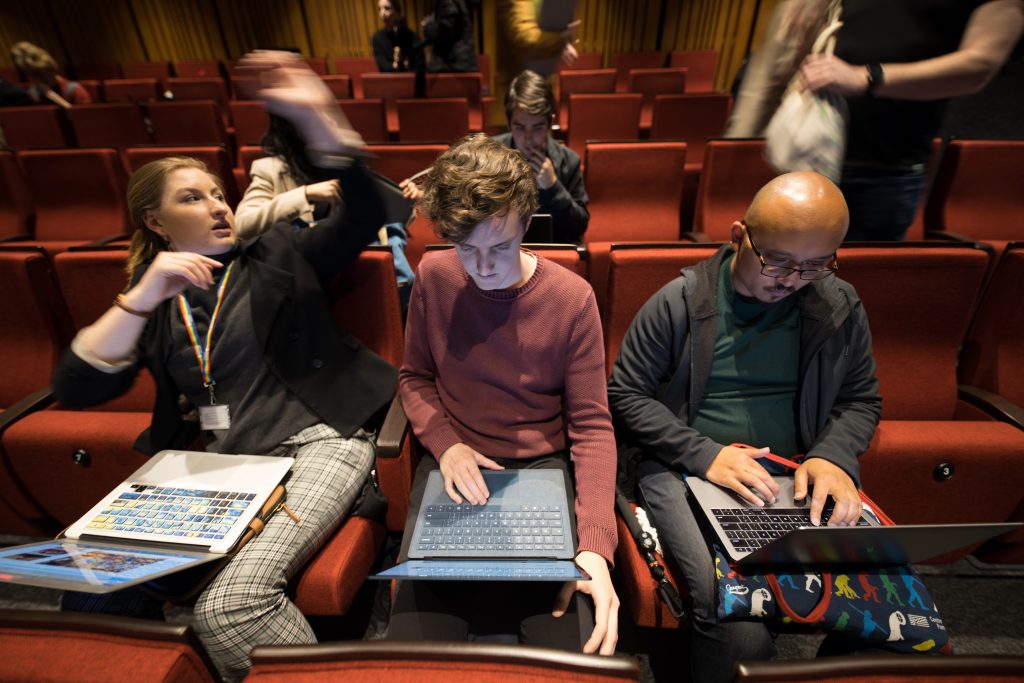
RMIT staff and students prepare to cover ‘What Price Would You Pay?’ at RMIT’s Kaleide Theatre. Over 70 RMIT journalism students covered The Walkley Awards event.
Photo: Warwick Jones
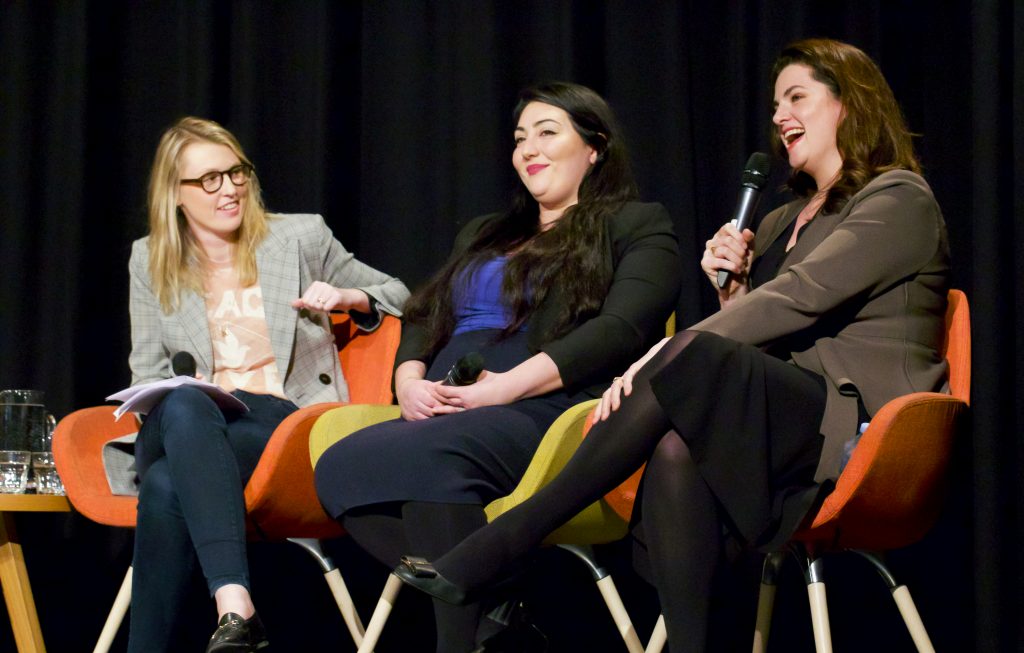
Lauren Molan (left), Zena Chamas (middle), and Louise Milligan (right) laughing during last night’s panel discussion. Louise Milligan prevailed through gruelling sexism and grotesque details during cross-examination in Cardinal Pell’s sexual abuse case.
Photo: Warwick Jones
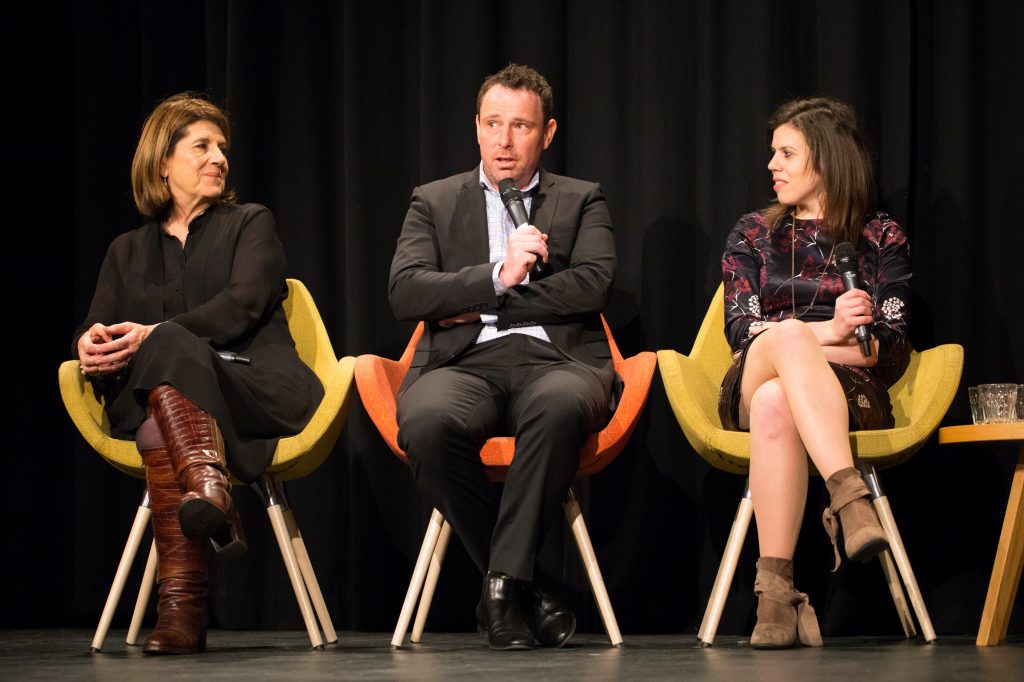
Caroline Wilson (left), Grant McArthur (middle), Lisa Martin (right) discuss sacrifice and hardship in the pursuit of public interest journalism. Lisa Martin, who broke a scandal about backdoor visas for au pairs, was certain she would be next after the AFP raided the offices and homes of journalists who embarrassed the government.
Photo: Warwick Jones
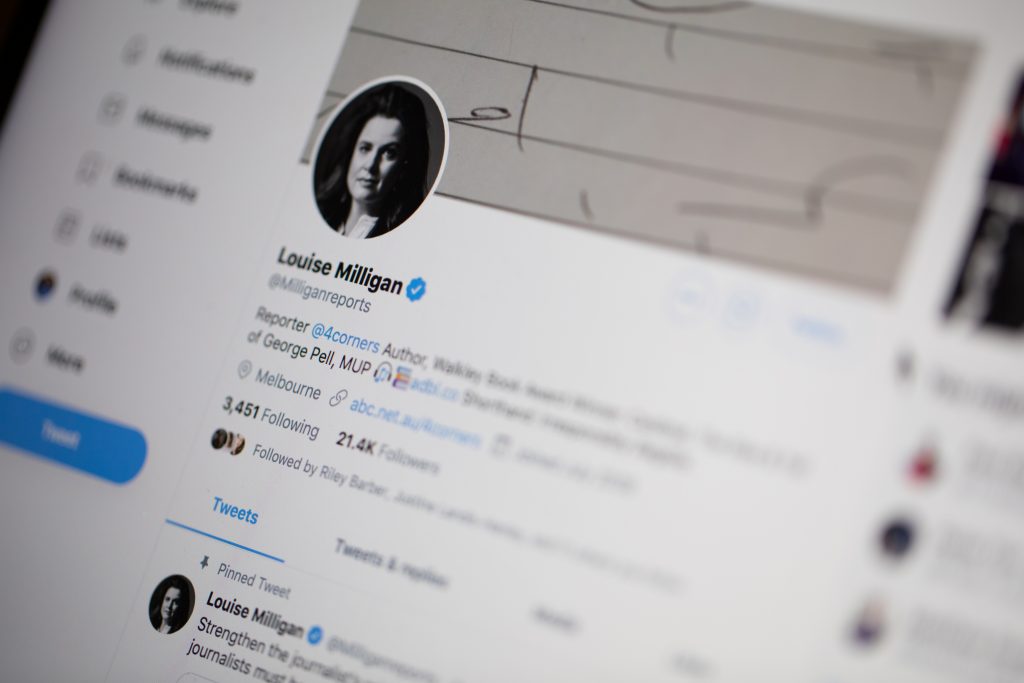
An attendant researches Louise Milligan’s Twitter account during the forum. Louise said people set up a Twitter account using her photo to send her death threats and plan her murder.
Photo: Warwick Jones
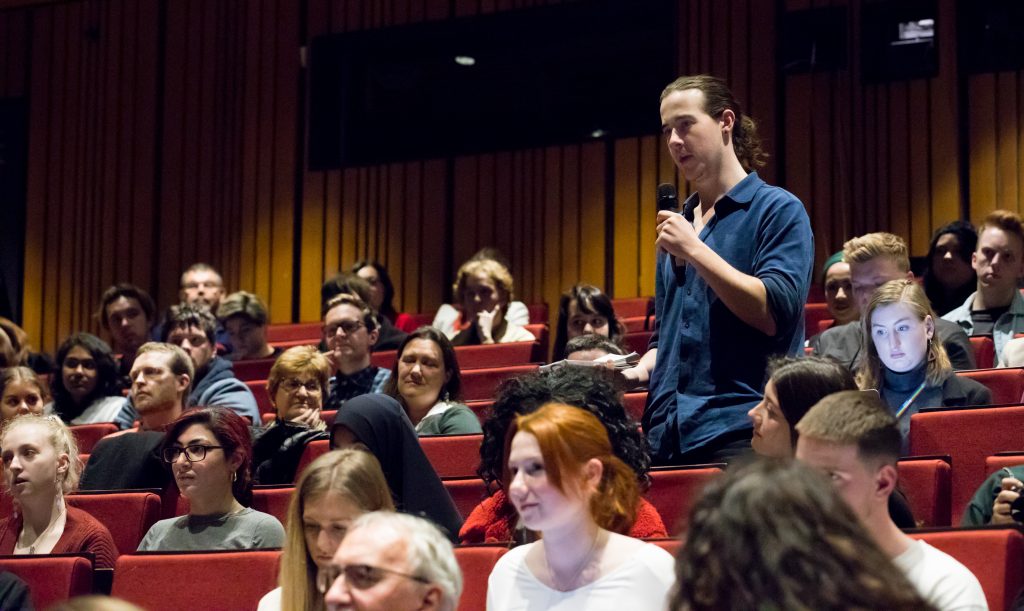
Team colour writer, Matt Parnell, asks the panel about protections for whistleblowers. Australia has this year attracted international attention for prosecuting whistleblowers who leaked documents in the public interest.
Photo: Warwick Jones

The panel listens to a question from the audience. Panellists included winners of the Walkley and Quill Awards.
Photo: Warwick Jones
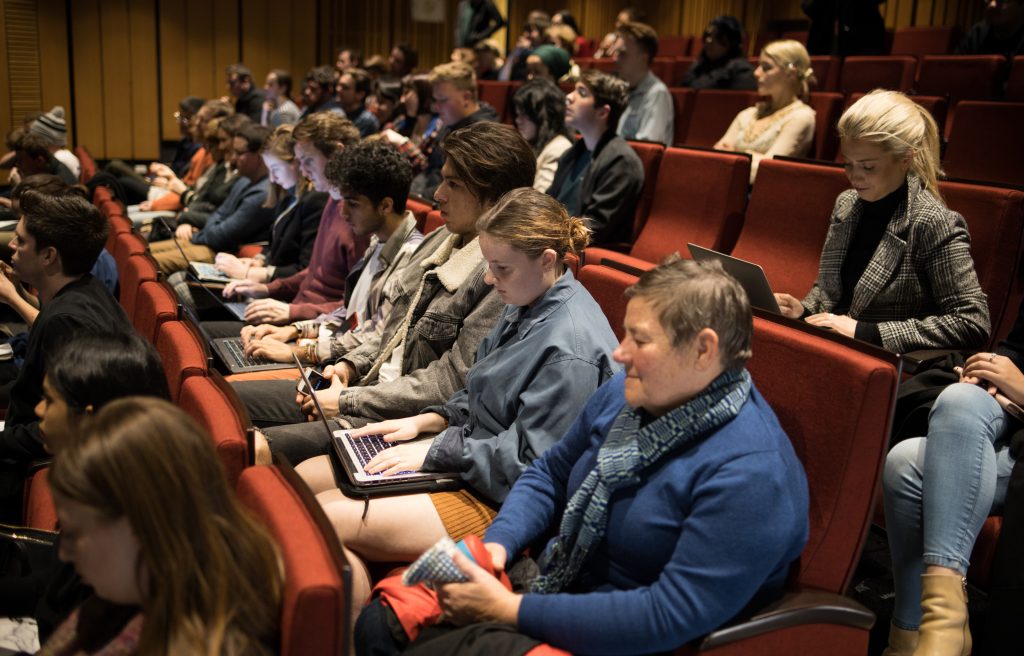
Audience members take notes during the panel’s discussion. The sounds of keyboards and camera shutters murmured throughout the event.
Photo: Warwick Jones
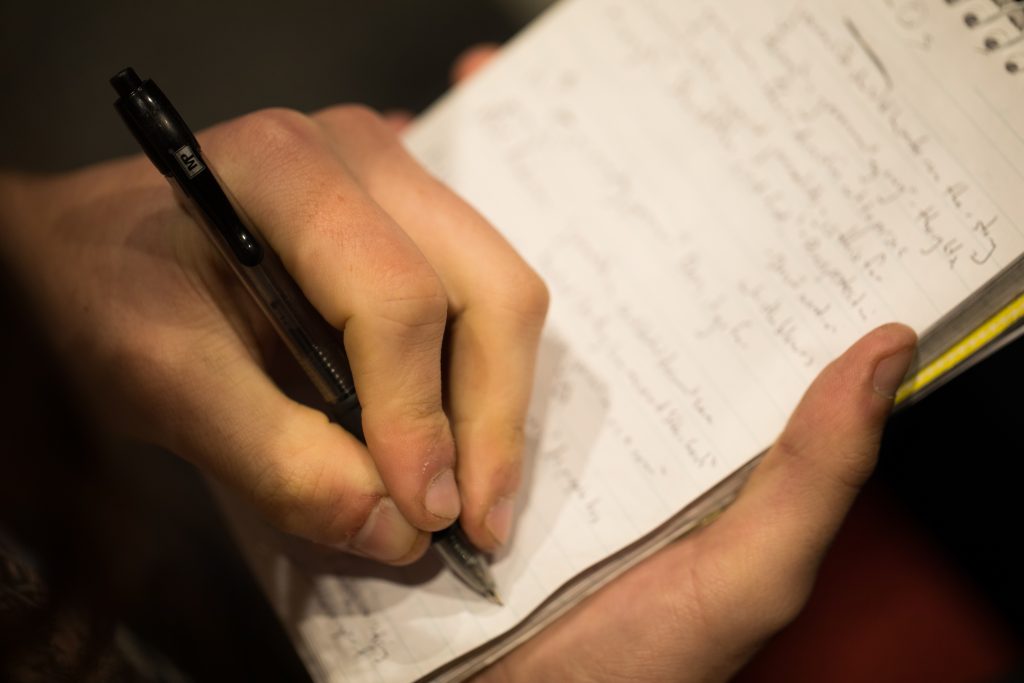
A student takes notes during the two-hour event. As subscriptions dwindle and ad revenue is soaked up by Facebook and Google, journalism students face an increasingly volatile workplace.
Photo: Warwick Jones
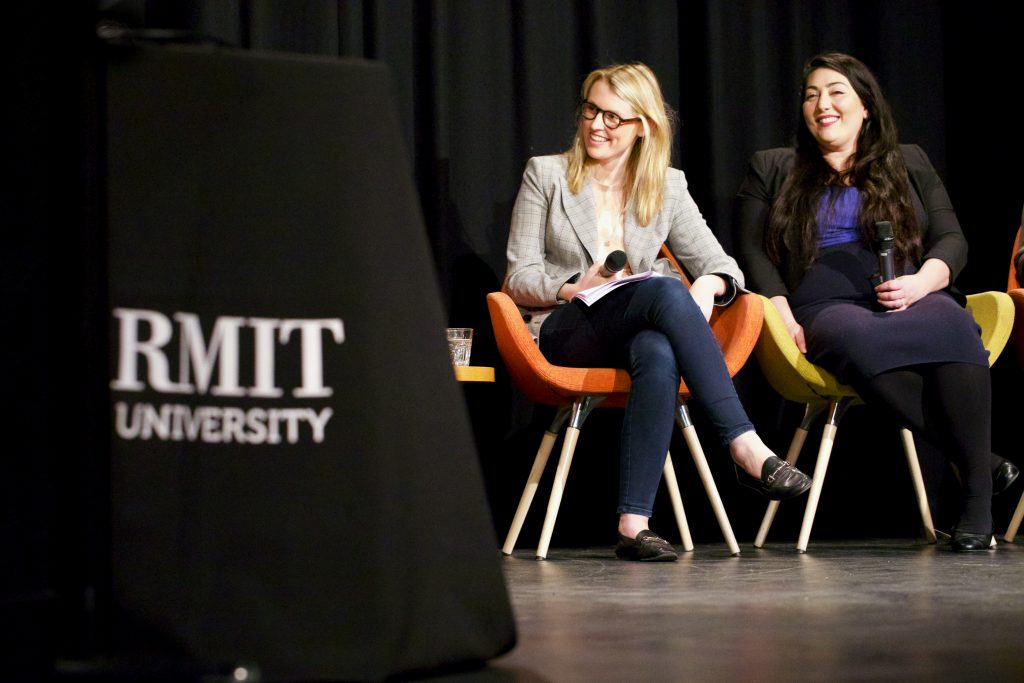
RMIT University hosted The Walkley Awards panel event. This week, RMIT students continued to protest for democracy in Hong Kong, where the press are allegedly being targeted by police.
Photo: Warwick Jones
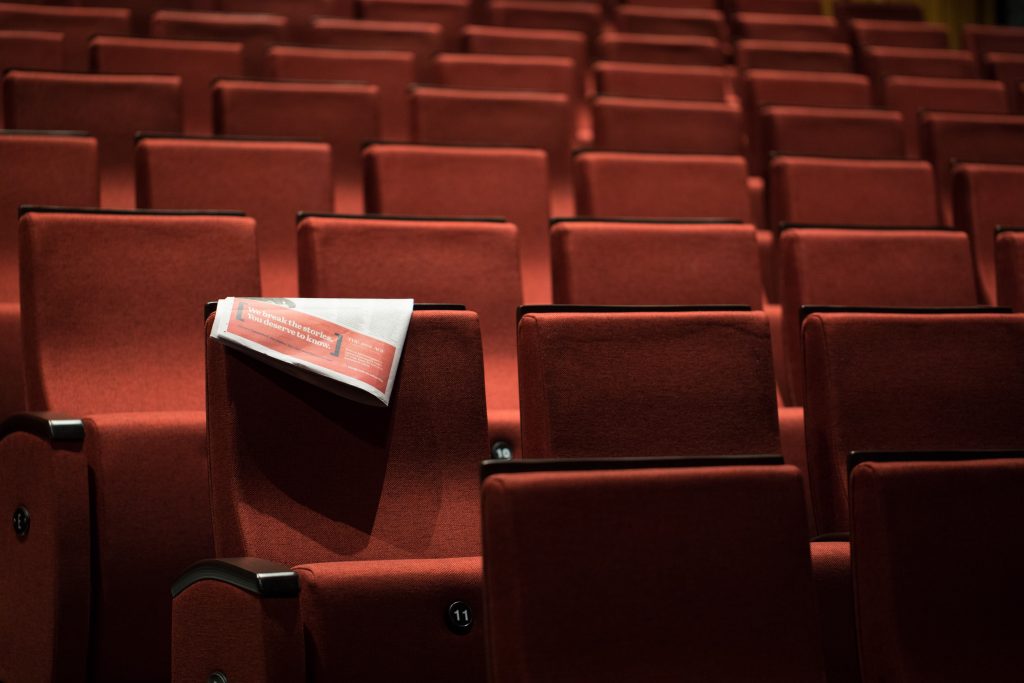
A newspaper hangs on the back of a chair in the Kaleide theatre after the event. A decline in print media consumption has already diminished investigative journalism in Australia.
Photo: Warwick Jones
___________
Social Media
We’re here tonight at RMIT’s Kaleide Theatre for the Walkey Event ‘What Price Would You Pay?’ – a discussion into the need for quality journalism in our current society. I’ll be live tweeting on here while also blogging on The City Journal #walkleys @RMIT @walkleys @rmitjournos
— Sean Mortell (@SeanMortell1) August 15, 2019
In just over half an hour we will be joined by @chamas_zena , @Milliganreports , Caroline Wilson of The Age, @LMARTI and @LauzMo in a panel discussion about the importance of journalism for our future @JournalismRmit #walkeys @walkleys
— Sean Mortell (@SeanMortell1) August 15, 2019
What makes good quality journalism?@LMARTI says journalism “informs decisions about our democracy and doesn’t assume the audience are experts” @JournalismRmit #walkleys @walkleys
— Sean Mortell (@SeanMortell1) August 15, 2019
“Sometimes you feel like it is coming at you from all angles” says Caroline Wilson in response to the consequences she faced for reporting on the 2013 Essendon doping scandal @JournalismRmit @walkleys
— Sean Mortell (@SeanMortell1) August 15, 2019
“You need to understand if you lose this, you’ll be prosecuted for contempt of court” is what @Milliganreports heard from the courts for not disclosing confidential sources on child sexual abuse victims. @JournalismRmit @walkleys
— Sean Mortell (@SeanMortell1) August 15, 2019
“I could be gang raped”, says @LMARTI on her near-death experience in a car while covering foreign political exchanges in Port Moresby @JournalismRmit @walkleys
— Sean Mortell (@SeanMortell1) August 15, 2019
“Writing about my experiences actually helped others come out and talk about their own experiences”, says @chamas_zena as a justification for why she fights on through the challenges of journalism @JournalismRmit @walkleys
— Sean Mortell (@SeanMortell1) August 15, 2019


